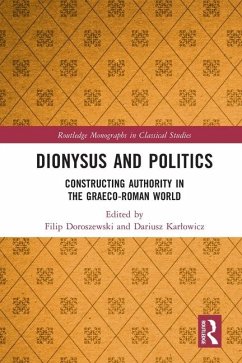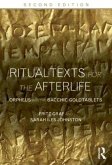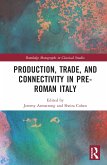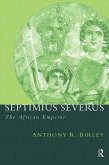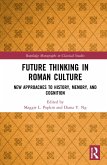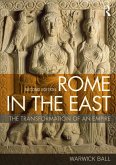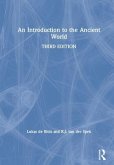This volume presents an essential but underestimated role that Dionysus played in Greek and Roman political thought. Written by an interdisciplinary team of scholars, the volume covers the period from archaic Greece to the late Roman Empire.
The reader can observe how ideas and political themes rooted in Greek classical thought were continued, adapted and developed over the course of history. The authors (including four leading experts in the field: Cornelia Isler-Kerényi, Jean-Marie Pailler, Richard Seaford andRichard Stoneman) reconstruct the political significance of Dionysus by examining different types of evidence: historiography, poetry, coins, epigraphy, art and philosophy. They discuss the place of the god in Greek city-state politics, explore the long tradition of imitating Dionysus that ancient leaders, from Alexander the Great to the Roman emperors, manifested in various ways, and shows how the political role of Dionysus was reflected in Orphism and Neoplatonist philosophy.
Dionysus and Politics provides an excellent introduction to a fundamental feature of ancient political thought which until now has been largely neglected by mainstream academia. The book will be an invaluable resource to students and scholars interested in ancient politics and religion.
The reader can observe how ideas and political themes rooted in Greek classical thought were continued, adapted and developed over the course of history. The authors (including four leading experts in the field: Cornelia Isler-Kerényi, Jean-Marie Pailler, Richard Seaford andRichard Stoneman) reconstruct the political significance of Dionysus by examining different types of evidence: historiography, poetry, coins, epigraphy, art and philosophy. They discuss the place of the god in Greek city-state politics, explore the long tradition of imitating Dionysus that ancient leaders, from Alexander the Great to the Roman emperors, manifested in various ways, and shows how the political role of Dionysus was reflected in Orphism and Neoplatonist philosophy.
Dionysus and Politics provides an excellent introduction to a fundamental feature of ancient political thought which until now has been largely neglected by mainstream academia. The book will be an invaluable resource to students and scholars interested in ancient politics and religion.
"Réunissant les articles de plusieurs spécialistes du dieu Dionysos, l'ouvrage constitue un point de repère important pour les futures recherches sur le rapport entre l'imaginaire bachique et la représentation du pouvoir. Le choix d'une chronologie large guide le public dans l'évolution de l'imaginaire dionysiaque et de son lien avec les processus de construction de l'autorité politique dans les mondes grec et romain. La lecture des diverses contributions permet également d'envisager d'autres pistes de recherche qui pourraient être explorées en lien avec la thématique du volume."
(Bringing together articles from several specialists of the god Dionysus, the book constitutes an important point of reference for future research on the relationship between the bacchanalian imagination and the representation of power. The choice of a broad timeline guides the audience in the evolution of the Dionysian imaginary and its link with the process of construction of political authority in the Greek and Roman worlds. Reading the various contributions also makes it possible to consider other avenues of research that could be explored in line with the theme of the volume.) - Kernos
"This volume will prove to be an invaluable resource both for its compilation and incisive analyses of a remarkable breadth of material and for its compelling vision of the persistence and complexity of Dionysus across antiquity and beyond."
-Courtney J. P. Friesen, University of Arizona, Religious Studies Review
(Bringing together articles from several specialists of the god Dionysus, the book constitutes an important point of reference for future research on the relationship between the bacchanalian imagination and the representation of power. The choice of a broad timeline guides the audience in the evolution of the Dionysian imaginary and its link with the process of construction of political authority in the Greek and Roman worlds. Reading the various contributions also makes it possible to consider other avenues of research that could be explored in line with the theme of the volume.) - Kernos
"This volume will prove to be an invaluable resource both for its compilation and incisive analyses of a remarkable breadth of material and for its compelling vision of the persistence and complexity of Dionysus across antiquity and beyond."
-Courtney J. P. Friesen, University of Arizona, Religious Studies Review

